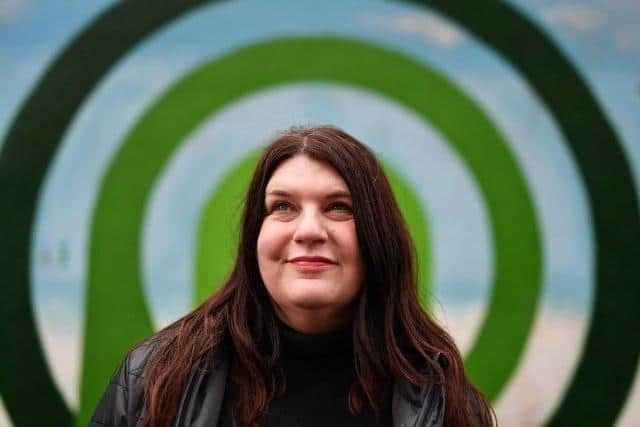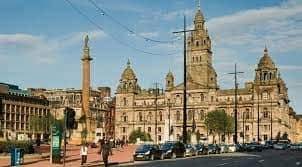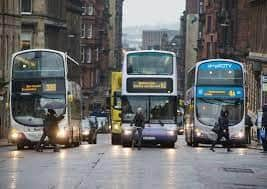COP26: City car ban as Glasgow council leader reveals five-year plan to tackle air pollution
and live on Freeview channel 276
Councillor Susan Aitken, leader of the authority’s ruling SNP administration, said a number of streets would become car-free as part of a £30 billion plan to make the city carbon-neutral by 2030.
The area will be created by 2026 and will stretch from George Square to Hope Street across Argyle Street and up to Cathedral Street.
Advertisement
Hide AdAdvertisement
Hide AdThe proposals include some of the busiest parts of Scotland’s biggest cities with Hope Street particularly affected by traffic congestion and a high number of buses.


Ms Aitken said the council had already taken some "tough decisions" around pollution and congestion including Scotland's first low emissions zone (LEZ) and wanted to take this a step further.
Speaking at a Thriving Cities event at COP26, Ms Aitken said: "I want to work towards having the core of our historic city centre given over to people, public transport and active travel.
"It's a big step and we don't under-estimate the challenge of making that transition from what has been, for far too long, a car-dominated city centre.


Advertisement
Hide AdAdvertisement
Hide Ad“What takes its place is really important. There are benefits to reducing traffic - but how we then activate the space and make it more attractive and welcoming for people who want to live, work, shop and visit in our city centre will really make a difference.
"It is something that will have to be delivered incrementally, in partnership with city centre businesses, but I think it's the kind of ambition that we have to demonstrate.
"We need new ideas, a new vision and collaborations to create that better and sustainable life that we envision for everyone in Glasgow."


The announcement comes after the council rolled out its 'Spaces for People' project during the pandemic which aimed to prioritise pedestrians and cyclists over cars in large areas of the city.
Advertisement
Hide AdAdvertisement
Hide AdMs Aitken added: "We've already taken some tough decisions around pollution and congestion including Scotland's first low emissions zone which will remove all but the greenest vehicles by 2023.
"Our Spaces for People project was a major response to Covid as the city re-opened after lockdown to re-prioritise public space and give it to people rather than cars."
Underlining the council’s ambitions to improve the city’s health, equality and climate justice, she continued: “In 2021, poor air quality remains a clear social justice issue, a barrier to improving well-being and prosperity.
“In a city where almost half of households have no access to a car, our most disadvantaged communities are disproportionately affected by transport related emissions. These impacts are well known and our knowledge of these is expanding all the time.
Advertisement
Hide AdAdvertisement
Hide Ad“Whether it is the impact on cardiovascular disease and breathing conditions such as asthma, or the less obvious contribution to conditions such as dementia, diabetes or cancers, air pollution affects us all and especially our most vulnerable.
“We talk a lot about the inseparability of climate and social justice. That’s as relevant here in Glasgow as anywhere.”
A message from the Editor:
Thank you for reading this article. We're more reliant on your support than ever as the shift in consumer habits brought about by coronavirus impacts our advertisers.
If you haven't already, please consider supporting our trusted, fact-checked journalism by taking out a digital subscription.
Comment Guidelines
National World encourages reader discussion on our stories. User feedback, insights and back-and-forth exchanges add a rich layer of context to reporting. Please review our Community Guidelines before commenting.